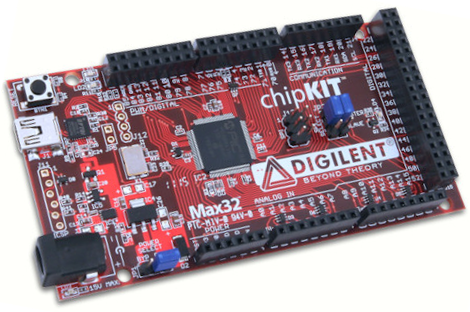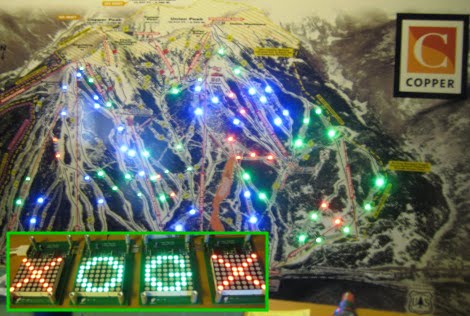
For those of you who are looking to put some power behind your Arduino shields, Digilent just released their chipKIT Max32 prototyping platform. The board features a Pic 32 microcontroller, USB programmer and all the things you would typically expect from a development board.
The PIC32MX795F512 is a 32-bit MIPS processor core running at 80Mhz, 512KB flash memory and packs 128KB of SRAM data memory. Digilent also mentions utilizing the Pic’s built in USB 2 controller, 10/100 Ethernet and dual CAN controllers, but these will require shields specific to the chipKIT Max32. The board is also fully compatible with Arduino IDE and libraries as well as MPLAB and the PICKit3 in-system programmer/debugger.
With a price point just below the Arduino Mega 2560 this looks like a great resource for anyone looking to upgrade their Arduino webserver, or just embarrass their Arduino Arduino shield. Maybe it’ll just spawn some interesting gameduino upgrades. It can certainly cut down on extraneous Arduino usage. Either way we’ll be on the lookout to see what this performance bump can bring to table!














